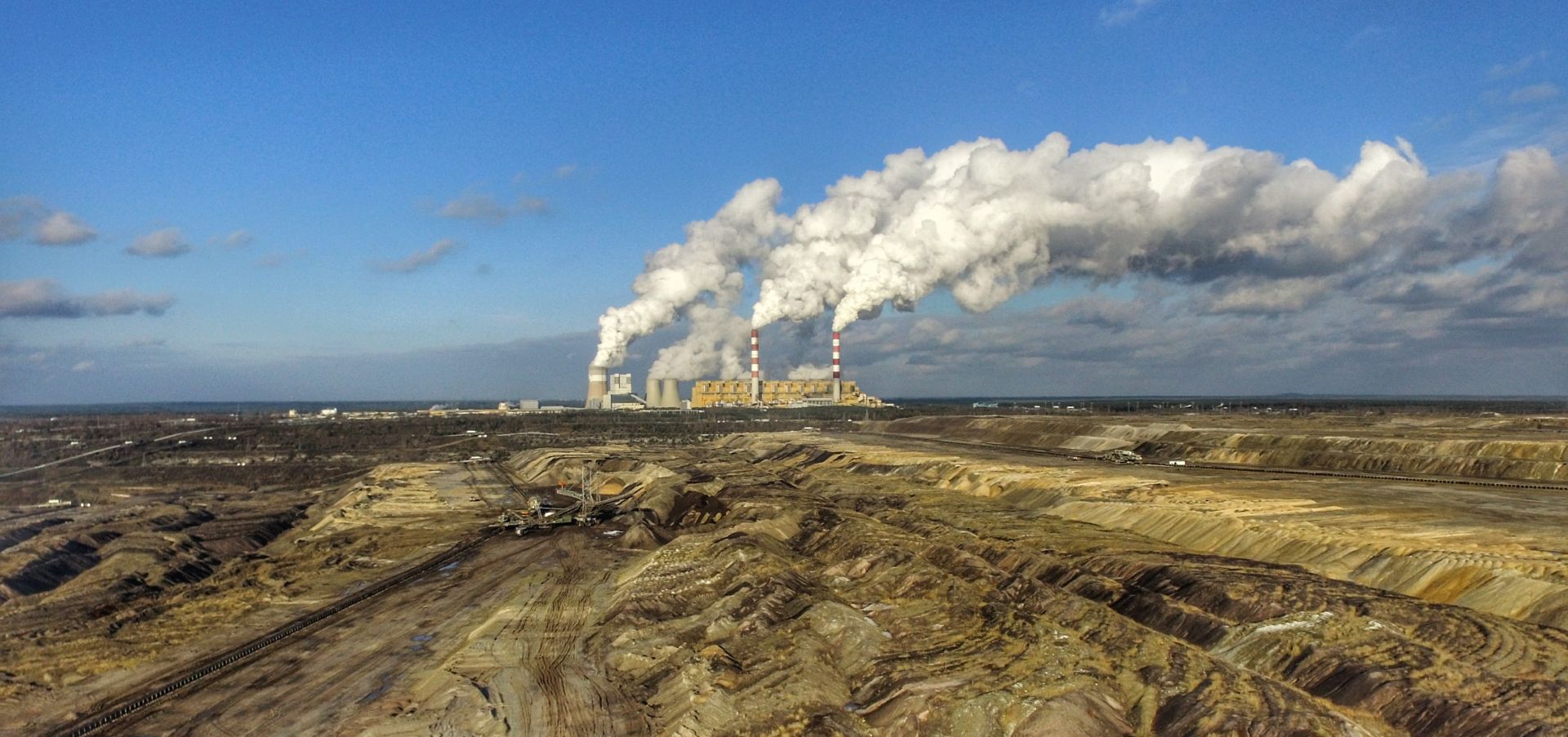Recent announcements by the Polish government are unambiguous: the Polish power industry will continue to be based on coal. But unless the energy industry transitions to renewables, Poland will face shortages, Michał Olszewski warns.

Poland’s reliance on coal spells future disaster for energy security (Photo by Phil MacDonald, edited, CC BY-SA 4.0)
Lignite is one of the two foundations on which Polish energy is built. Last year, lignite power plants produced a total of 30% of Poland’s electricity (compared to 50% of electricity from bituminous coal). The Bełchatów power plant, the largest in Poland and 25th largest in the world (and at the same time the most modern in the country), was singly responsible for the production of 20% of all electricity.
However, this source of cheap electricity is beginning to dry up. Extraction in the Bełchatów mine (central Poland) near the power plant will end in around 2021, and around 2040 in the nearby Szczerców field. Exploitation of the Konin field will end in 20 years at the latest, and around 2045 in Turów. In the energy sector, this is not a distant prospect.
So the government began fervently searching for an emergency exit, while the threat of power shortages becomes more pressing. The rapidly dissipating bituminous coal reserves, the sluggish development of renewable energy sources hampered by conservative politicians, and the abandonment of the plan to build a nuclear power plant could create instability. In addition, electricity demand structure is changing: while energy consumption is not growing rapidly, the climate is. With increasingly hot summers and cold winters, energy peaks are reaching the upper limits of Polish generation capacity.
Hence the decisive declarations of Grzegorz Tobiszowski, deputy minister of energy: next year at the latest, work will begin on the Złoczew open-cast mine. This is an area near Bełchatów, and about 10 km long by 1 to 1.5 km wide.
According to the report “The effects of building an open-cast lignite mine on the Złoczew field” prepared for Greenpeace (and authored by Dr. Benedykt Pepliński of the Poznań University of Life Sciences), the coal lies at a depth beginning about 300 meters below the surface. Its lifetime is estimated at nearly 40 years. At the same time, the Ministry of Energy is declaring that the latest technologies will be used in the exploitation of the field, including coal gasification.
But this picture would not be complete without counting the external costs, which in the Polish energy sector are often not estimated. The depth of the coal deposits means that the pit will have to be very large. The consequences for water in the area therefore seem obvious: just like everywhere else where open-pit mines operate, water will escape. This will create great difficulties, if not the end of agriculture around the Złoczew field. There are also significant social costs associated with the exposure: preliminary estimates are that 3,000 residents will need to be resettled.
Złoczew is not the only coal deposit that politicians are looking at. For many years, there has been talk of beginning mining near Legnica (in south-eastern Poland). Reserves of very high quality lignite there are estimated at about 15 billion tons, which is five times as much as has been extracted in Poland since 1945. But in Legnica, public resistance and awareness of the environmental losses caused the project to be postponed. Similarly, in the vicinity of Konin, there are two rich fields at Ościsłowo and Dęby Szlacheckie. In both cases the local communities have protested against new open-cast mines, and the cost of commissioning them is very high.
In Złoczew it will probably be different: the Kleszczów commune, where the Bełchatów field is found, is one of the richest in Poland. No one but environmentalists will talk about the impact that burning lignite has on global warming: it is all about short-term profits.
The decision to commission the new mine coincides with Poland’s preparations for the climate summit in Katowice. We will certainly hear the organisers express the need to step up efforts to fight climate change and solidarity with those most negatively affected by global warming. I assume – mistakenly, I hope – that the Polish delegation will entirely skirt the issue of the significant impact that burning lignite has on global warming.